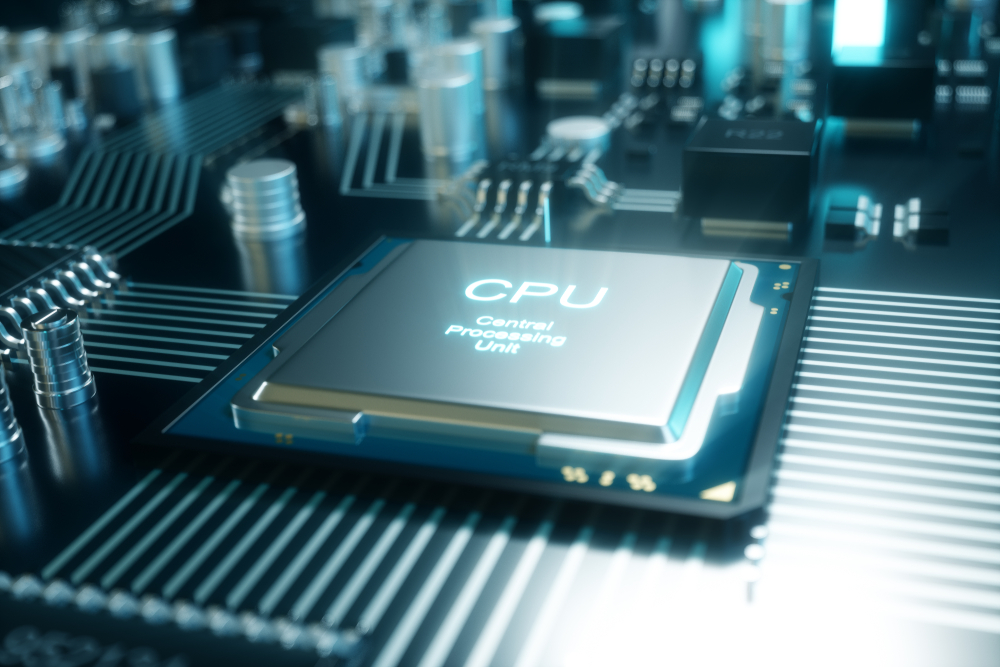CPU-Z Isn't Good For Benchmarking CPUs According To New Study
It's no Cinebench 2024.

CPU-Z is an app that shows a PC's hardware specifications, providing in-depth details about the CPU in particular. It also comes with a CPU benchmark, and although it's not nearly as popular as Cinebench, it's still popped up in some reviews and even AMD's marketing slides. However, technical analysis site Chips and Cheese has found that CPU-Z's benchmark just isn't perfect for evaluating the best CPUs.
CPU benchmarks can test lots of different things because there's so much to a CPU on a microscopic level, and so other benchmarks give different rankings. But what a benchmark doesn't test can also be necessary, and that's the critical issue with CPU-Z's benchmark, according to Chips and Cheese, as it doesn't adequately test cache or branch prediction.
The cache is a small amount of memory integrated into processors to lower the time spent communicating with RAM, which is much slower. The CPU-Z benchmark is less than 32KB large, which fits into the L1 (first level) cache of even old CPUs. While technically very efficient, it also makes for a benchmark that can't stress a CPU's cache, so CPUs with better cache don't score any better.
Branch prediction is the process of a chip attempting to guess upcoming tasks. Correct predictions mean faster execution, while wrong predictions lose time. In CPU-Z, Chips and Cheese found that even the infamous FX-8150 Bulldozer CPU had a branch prediction success rate of 95%. That's pretty generous for a CPU that received universally bad reviews when it launched in 2011.
It's not just Chips and Cheese that thinks cache and branch prediction performance is essential, as the report quotes Jim Keller in the conclusion. The legendary engineer in 2021 claimed some of the most significant limitations on performance today are "branch predictability and data locality." With the latest AMD and Intel CPUs bulking up in cache to keep data as accessible to the CPU as possible, Keller is probably right.
Get Tom's Hardware's best news and in-depth reviews, straight to your inbox.

Matthew Connatser is a freelancing writer for Tom's Hardware US. He writes articles about CPUs, GPUs, SSDs, and computers in general.
-
punkncat I like CPU-Z for the information it offers. I tend to take the benchmark with a grain of salt, but is still pretty decent to check stability and temps. In my own case it is something I do with new builds to be sure the cooler is working and properly seated.Reply -
Makaveli Reply
same i'm not someone that is big on synthetic benchmarks in general.punkncat said:I like CPU-Z for the information it offers. I tend to take the benchmark with a grain of salt, but is still pretty decent to check stability and temps. In my own case it is something I do with new builds to be sure the cooler is working and properly seated. -
Alvar "Miles" Udell It IS good, however, for a quick and dirty "is it stable" test when overclocking, as if it can't make it past there there's no reason to move onto Cinebench. It's really not that great at looking at the information, especially on AMD Zen 1-3 platforms (and Zen 4 too?) because of the way AMD reports voltage incorrectly (even reporting to Ryzen Master incorrectly).Reply
It's also good to generate a quick report to show it's working when you go to sell it on eBay. -
azalea_k I didn't even know it had a benchmark; also, there's a good reason review sites use multiple benches when testing.Reply -
bit_user Reply
True, but a low-quality benchmark that doesn't either qualify as a micro-benchmark or match any real-world workload will only serve to add more noise to the review & aggregate results.azalea_k said:also, there's a good reason review sites use multiple benches when testing. -
Alvar "Miles" Udell But then it serves as an easy test to see if it's a site you should pay any attention to.Reply -
bit_user Reply
Not sure about that, since who out there is profiling the benchmarks they run, like Chips & Cheese just did? Seriously, name one benchmarking & reviews site who's done that.Alvar Miles Udell said:But then it serves as an easy test to see if it's a site you should pay any attention to.
Heck, Toms is better than some in even separating out their application benchmarks into single-threaded & multi-threaded, when computing aggregate scores.
Ideally, this revelation would lead to greater transparency, for benchmarks that aren't measuring real end-user applications. Furthermore, I'd like to see someone try to validate suites like PCMark by testing how they correspond to direct tests of end user apps.
I do make a special exception for what are termed "micro-benchmarks", like cache & memory tests. That's because these have no pretense of directly predicting application performance, but instead give some insight into various aspects of the system that can potentially help explain the results of application-level benchmarks.